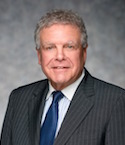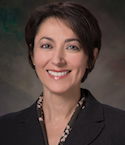COVID-19 has catapulted us into a world in which virtually all legal services are conducted online. Ethics rules require lawyers to maintain competence, and many states require lawyers to stay abreast of relevant technology.
Ethics And Professional Compensation Committee
Committees
The coronavirus pandemic has forced millions of workers to work remotely — resulting in a drastic increase in videoconferencing.
Courts rarely grant motions for reconsideration, but the U.S. Bankruptcy Court for the District of Delaware did just that in the context of fee-shifting sanctions in In re NNN 400 Capital Center 16, LLC.[1] While the court ultimately upheld the sanctions, it provided a thorough analysis of a court’s ability to shift fees.
According to the U.S. Bankruptcy Court for the Western District of Oklahoma, if pre-petition attorney’s fees are included in the mortgage creditor’s proof of claim, contemporaneous time records are required to establish the reasonableness of those fees.
In order for a trustee to surcharge expenses under § 506(c), he “must prove that [his] expenses were reasonable, necessary, and provided a quantifiable benefit” to the secured creditors property.[1] The trustee must show some benefit sufficient for surcharge under this objective test, identify the specific expenses, tie them to specifi
In East Coast Miner LLC v.
A recent decision by the U.S. Bankruptcy Court for the District of Utah[1] is a cautionary tale for senior-level employees that are considering leaving their employment and taking employees and business to a competitor. It is also a primer for an employer who has to pursue its claim against the departing employee in bankruptcy court.
Earlier this year, the U.S. Court of Appeals for the Fourth Circuit considered whether the Bankruptcy Code bars a creditor from asserting an unsecured claim for attorneys’ fees incurred post-petition but provided for in a pre-petition contract.
The Ethics and Professional Compensation Committee has had a busy and productive 2019. As evidenced by our steadily increasing membership, the committee is a valuable resource for insolvency professionals interested in keeping abreast of current and important issues involving ethics and professional compensation in the bankruptcy field. These are some of the highlights from this year:
This is Part 2 of an article about the Lorick case,[1] concerning the disposition of the proceeds of the bankruptcy sale of a valuable property in Brighton Beach, Brooklyn, in which Wells Fargo was an oversecured creditor.
Co-Chair
Nelson Mullins Riley & Scarborough, LLP
Atlanta, GA
(404) 322-6143
Co-Chair
Pierson Ferdinand LLP
Jacksonville, FL
(904) 479-6612
Membership Relations Director
Douglas W. Neway, Standing Chapter 13 Trustee
Jacksonville, FL
(904) 358-6465
Newsletter Editor
Parsons Behle & Latimer
Salt Lake City, UT
(801) 536-6788
Special Projects Leader
Louisiana State University Paul M. Hebert Law Center
Baton Rouge, LA
(404) 307-2754














